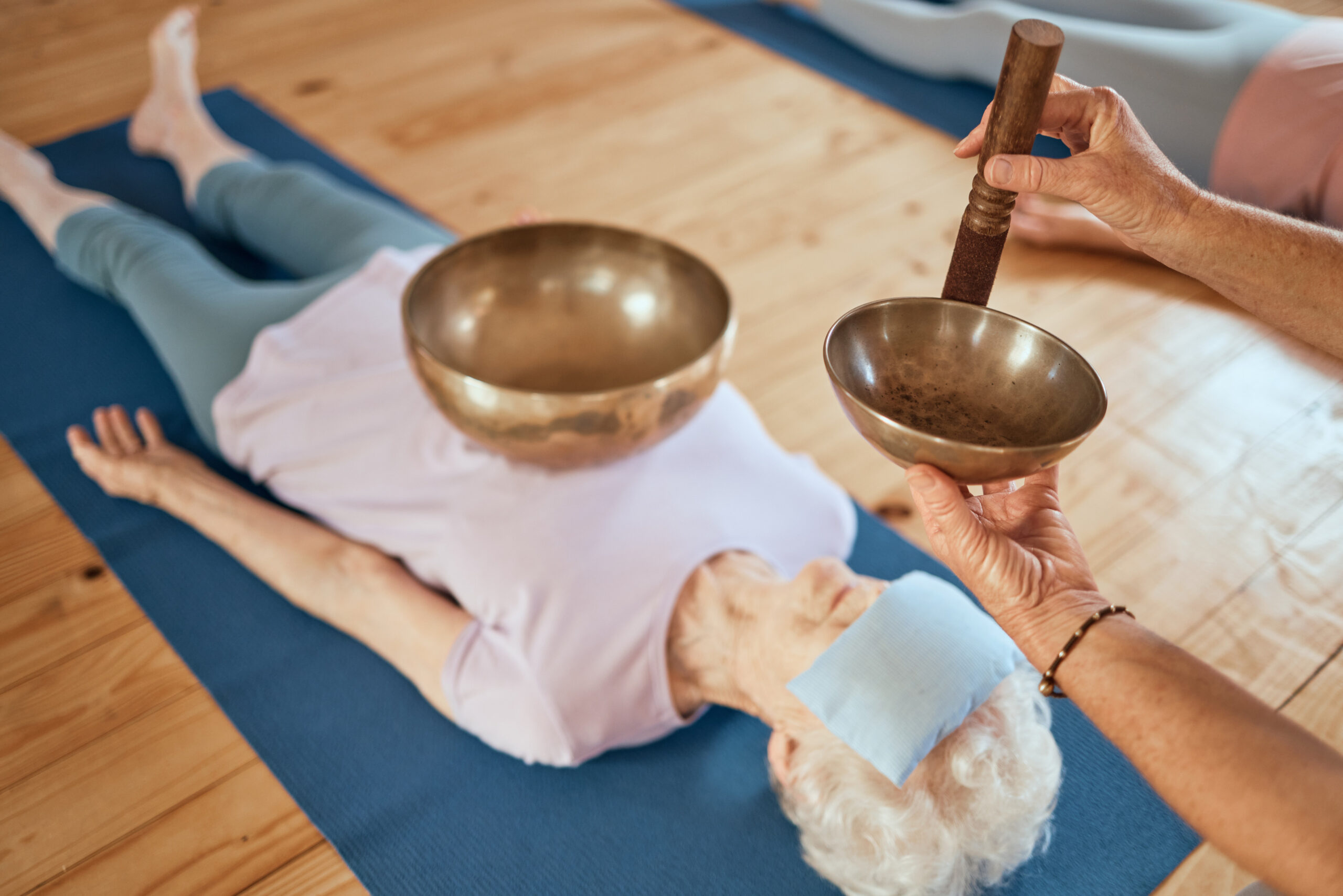Exploring the Benefits of Visualization during Bath Meditation

Understanding the Benefits of Visualization in Bath Meditation
Bath meditation is not merely about relaxation; it is an art form that can evolve into a deeply restorative practice when combined with visualization techniques. By immersing oneself in warm water and engaging the mind’s eye, individuals can create an oasis of serenity that fosters significant emotional and psychological benefits.
When you integrate visualization into your bath meditation, it can produce several noteworthy outcomes:
- Enhanced Focus: Visualization helps channel your thoughts, allowing you to concentrate more deeply on your goals. For instance, if you envision yourself achieving a particular milestone—like acquiring a new skill or completing a project—the clarity gained can enhance your focus and drive.
- Stress Relief: Imagining peaceful landscapes, such as the lush green hills of Jos or the serene beaches of Lagos, can significantly lower cortisol levels. The calming effect of these images can transport you mentally, providing a much-needed break from the stresses of daily life.
- Improved Mood: Studies indicate that visualizing positive experiences can elevate overall feelings of happiness and well-being. For example, recalling joyful moments shared with family during a festive Nigerian celebration can uplift your spirits, encouraging a more optimistic mindset.
In Nigeria, where the vibrant yet fast-paced lifestyle often leads to overwhelming stress, incorporating visualization into bathtub rituals offers a peaceful retreat. The act of bathing becomes more meaningful as the calming waters meld with vivid images of tranquility, reminding practitioners of the importance of self-care amidst the chaos of urban life.
As you become immersed in this enriching practice, you will encounter various practical techniques to seamlessly introduce into your daily routine. This could involve dedicating a few minutes of your bath time to picture your desired mental state or focus on breathing—filling your lungs as if inhaling the fresh air of the countryside.
Join us in this exploration of the groundbreaking synergy between visualization and bath meditation. Discover how you can leverage these techniques to cultivate a greater sense of overall well-being, thus empowering you to navigate the complexities of life with newfound clarity and resilience.

ADDITIONAL INSIGHTS: Expand your understanding here
Harnessing the Power of Visualization: A Deeper Dive
The intersection of visualization and bath meditation is a fertile ground for personal growth and mindfulness. In a country like Nigeria, where the daily hustle can lead to mental fatigue, the practice of showering and soaking in a tub takes on a significant role in self-care. Visualization enhances these moments, transforming them from mundane routines into potent rituals that promote well-being.
One of the most remarkable benefits of incorporating visualization into bath meditation is the ability to create a personalized sanctuary of calm. By picturing serene environments, individuals can escape the realities of their surroundings. Here are some common techniques to enhance this mindful experience:
- Imagining Natural Landscapes: Picture yourself in the tranquil settings of Awhum Waterfall or the rolling hills of Enugu. Such imagery encourages relaxation and may even speedily transport you to a peaceful state of mind.
- Engaging All Senses: Beyond sight, consider what you can hear, smell, and feel in your visualization. Perhaps the rhythmic sound of waves crashing on the shore in Tarkwa Bay or the gentle chirping of birds in a lush forest. Engaging multiple senses can make the visualization more immersive.
- Setting Intentions: Dedicating a portion of your bath time to visualize specific goals or intentions can be particularly powerful. Imagine successfully navigating challenges at work or fostering stronger connections with loved ones, thereby providing clarity and motivation.
This enhancement of the meditation process is backed by research which shows that visualization can physically alter brain patterns and responses. Neuroscience experts have identified that consistent mental imagery can lead to the creation of new neural pathways, fostering resilience and emotional balance. In stress-prone environments such as urban Nigeria, these transformative practices can equip individuals with tools to manage anxiety effectively.
Furthermore, visualization during bath meditation leads to improved mindfulness. Mindfulness is the practice of being fully present, and combining it with visualization can deepen your meditative state, making every bath a meaningful journey rather than a mere escape. The daily demands of life, from the bustling markets of Lagos to the busy streets of Abuja, can often divert attention; hence, creating a moment of pause is invaluable. In this space, visualization acts as a powerful ally in achieving greater awareness and emotional regulation.
With these substantial benefits in mind, it becomes increasingly clear that integrating visualization techniques into bath meditation can significantly enhance one’s mental, emotional, and even spiritual well-being. A simple daily ritual of soaking in the tub, coupled with guided imagery, has the potential to reshape the way individuals navigate the stresses of daily life, making it a necessity in the quest for balance and tranquility.
| Category | Description |
|---|---|
| Mental Clarity | Visualization promotes mental clarity by allowing individuals to focus their thoughts and reduce mental clutter. |
| Emotional Release | Bath meditation with visualization helps users to release emotions trapped within, leading to a profound sense of relief and mindfulness. |
Exploring the powerful aspects of bath meditation, coupled with visualization techniques, brings forth numerous advantages that cater to mental and emotional well-being. Specifically, the process of integrating positive imagery into one’s bath meditation routine can lead individuals to experience heightened levels of awareness and focus. For instance, while soaking in warm water, envisioning peaceful landscapes or serene environments can create a safe sanctuary in one’s mind — a vital tool for stress management and relaxation. This active engagement can not only foster inner tranquility but also stimulate creative thoughts and problem-solving abilities.Moreover, the act of visualizing positive outcomes in various life situations encourages an optimistic mindset. The brain tends to respond favorably to positive imagery, which can pave the way for emotional healing. Consequently, incorporating these visualization practices during bath meditation enriches the experience, allowing individuals to connect deeply with their inner self while promoting overall wellness. As individuals continue to explore these benefits, they find themselves not only rejuvenated but also armed with techniques that can be implemented outside the bath, enhancing daily life.
CHECK OUT: Click here to explore more
Unlocking the Psychological Advantages of Visualization
The psychological benefits of integrating visualization into bath meditation extend far beyond mere relaxation. As the mind enters this serene space, visualizations can serve as powerful tools for fostering mental clarity and emotional resilience. In Nigeria’s fast-paced environment, maintaining mental fortitude is essential for navigating both everyday challenges and deeper life complexities.
One remarkable aspect of visualization is its capacity to enhance emotional regulation. By consciously directing thoughts towards calming and uplifting images, individuals can train their minds to respond more positively to external stressors. For instance, someone facing the pressure of work deadlines may visualize themselves successfully delivering a presentation or soothingly interacting with colleagues. This anticipatory visualization can reduce feelings of anxiety, paving the way for more balanced emotional responses during high-pressure situations.
Moreover, bath meditation offers an ideal setting for self-reflection and personal growth. While submerging in warm water, individuals often find themselves open to introspection. In this tranquil atmosphere, visualizations can help uncover subconscious thoughts and feelings that may otherwise remain buried. For example, envisioning a flowing river can symbolize the release of negative emotions, effectively facilitating emotional catharsis. Such moments allow for an internal dialogue, giving space to process unresolved issues, ultimately leading to a healthier mental state.
In addition, there is a notable connection between visualization practices and improved problem-solving abilities. Engaging in guided imagery during bath meditation can activate creative thinking pathways. As the mind relaxes and wanders, it becomes fertile ground for innovative ideas. For instance, a handicraft entrepreneur in Nigeria may visualize various designs and concepts for their next product. This technique not only serves the purpose of relaxation but also enhances cognitive flexibility—an essential trait for succeeding in a competitive market.
Numerous studies substantiate these claims. Researchers have found that visualizing positive outcomes can lead to improved performance across various fields, from athletics to academics. The concept of mental rehearsal—practiced by sports figures like Nigeria’s world-renowned athletes—demonstrates the real-world applications of visualization in achieving high performance. By incorporating such techniques into daily routines, individuals can foster a mindset oriented towards success.
A key aspect of visualization is its adaptability. Individuals can tailor their experiences based on personal needs and preferences. For instance, whether it’s imagining the vibrant colors of a Nigerian sunset or recalling a cherished family gathering, these personalized visualizations deepen the impact of bath meditation. This versatility enables practitioners to draw from their unique cultural backgrounds, enriching the experience and allowing for a profound sense of connection to one’s heritage.
As one delves into the world of bath meditation enriched by visualization, it becomes evident that these practices not only lead to tranquility but serve as effective strategies for enhancing mental acuity and emotional health. With a growing body of evidence supporting the transformative potential of these techniques, it is clear that they hold a significant place in the modern landscape of wellness, particularly for individuals navigating the unique challenges of life in Nigeria.
CHECK OUT: Click here to explore more
Conclusion: Embracing the Power of Visualization in Bath Meditation
As we have explored, the integration of visualization into bath meditation emerges as a transformative practice that goes beyond relaxation, significantly enriching mental and emotional well-being. This unique combination not only fosters mental clarity but also aids in developing resilience against life’s challenges, particularly within the dynamic context of Nigeria.
The psychological benefits associated with visualization are profound. They empower individuals to navigate stressors with a more balanced emotional response while allowing for moments of personal reflection and growth. By visualizing positive outcomes, practitioners enhance their problem-solving abilities and unlock creativity, which is especially crucial in a competitive landscape. This combination holds the potential to improve not only personal mental health but also professional success.
Moreover, the versatility of visualization—tailored to individual experiences—strengthens the emotional connection between practitioners and their cultural roots. Whether conjuring the imagery of lush landscapes or cherished memories, bath meditation coupled with personalized visualizations enriches the journey towards self-awareness and healing.
In summary, embracing visualization during bath meditation presents a compelling approach to fostering a sense of tranquility and enhancing cognitive proficiency. As more individuals explore these benefits, it is clear that this practice can contribute to a culture of well-being, empowering residents within Nigeria to face daily challenges with renewed vigor and creativity. Ultimately, this simple yet powerful technique warrants deeper investigation and wider adoption across communities, paving the way for a more resilient and fulfilled society.


